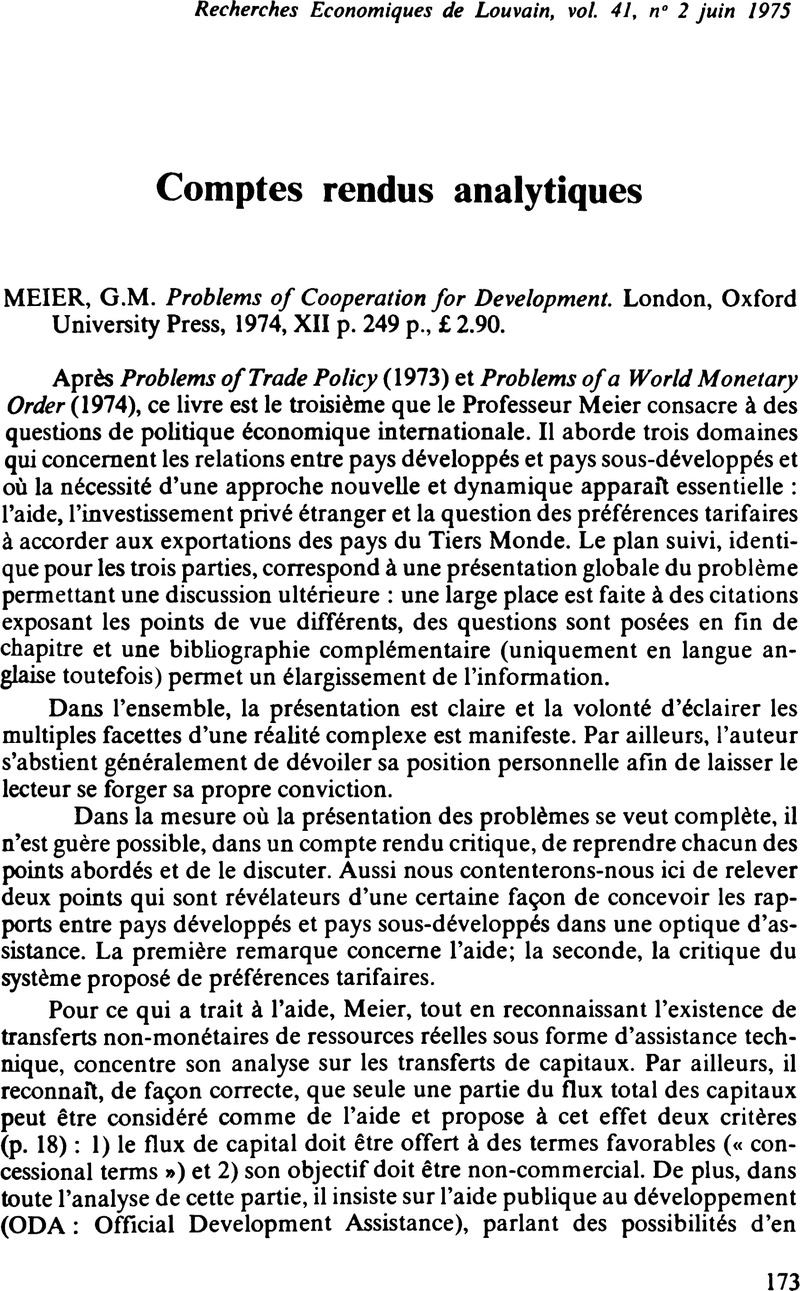No CrossRef data available.
Published online by Cambridge University Press: 17 August 2016

(1) Par exemple, p. 23-24, Meier cite John Pincus, dans un rapport à laCNUCED, parlant de « Péquivalent-don » (« grant equivalent ») de l'investissement privé - ce qui constitue un abus de langage. De même, quelques pages plus loin (p. 61-66), il cite longuement une déposition de Harry G. Johnson devant The Subcommittee on Foreign Economie Policy of the 91st Congress (1970) : Johnson insiste sur ce que « the emphasis in aid policy should be placed on efforts to promote private enterprise » et, dans cette voie, estime « that considerable emphasis should be placed on direct private foreign investment ».
(2) Souvent d'ailleurs moins important qu'il n'y paraît d'abord, dans la mesure où les capitaux fournis par l'investisseur proviennent en fait du pays lui-même, sous forme d'emprunts locaux ou de privilèges divers (ex. rentes de monopole).
(3) Voir Johnson, Harry G., Economie Policies Towards Less Developed Countries, Londres, George Allen and Unwin Ltd, 1968, p. 31 et p. 181 etsq.Google Scholar
(4) Cf. Meier, p. 209 : « But instead of government-to-governement aid, this (the prefe¬rence) would constitute consumer-to-producer aid. » !
(5) Cf. Report of the Secretary-General of UNCTAD, Towards a New Trade Policy of Development, U.N., 1964 (cité par Meier, p. 211).